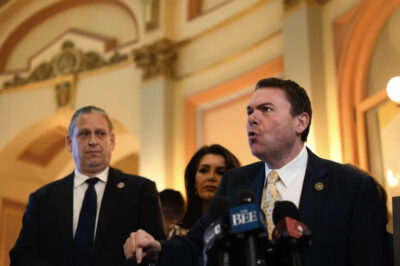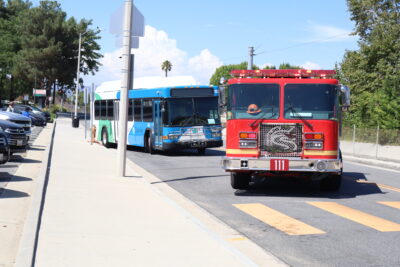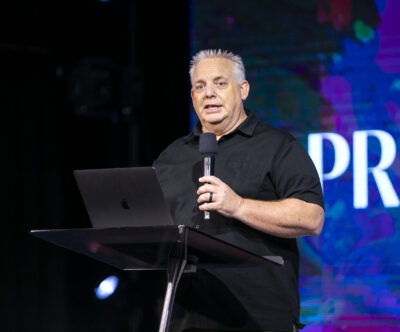By Tom Ozimek
Contributing Writer
Ukrainian President Volodymyr Zelenskyy said on Monday that his country is seeking $1 billion per month from allies to purchase American-made weapons to counter Russia’s invasion.
Zelenskyy made the remarks during a joint press conference on Monday in Kyiv alongside Norwegian Prime Minister Jonas Gahr Store, who said Norway could help provide security guarantees for Ukraine in maritime and air defense.
Store, whose country borders Russia, said that Ukraine is “defending a critical principle on the European level” by resisting Russia’s seizure of Ukrainian territory. He noted that Norway’s multibillion-dollar military and civilian support for Kyiv would continue into next year.
On Sunday, Norway pledged about $695 million for air defense systems. Together with Germany, it is funding two U.S.-made Patriot anti-missile systems, including missiles, while also helping procure radar, according to Store.
Other leaders visited Kyiv in recent days, underscoring Western backing for Ukraine. Canadian Prime Minister Mark Carney pledged about $1.4 billion in aid on Sunday. NATO Secretary-General Mark Rutte was in the capital on Friday, and Germany’s vice chancellor and finance minister, Lars Klingbeil, arrived on Monday to discuss “how Germany can best support Ukraine in a possible peace process.”
A week ago, U.S. President Donald Trump said he had set in motion arrangements for direct peace talks between Russian President Vladimir Putin and Zelenskyy, although Russian officials have signaled that such a summit is unlikely soon. Trump said on Friday that he would decide on the next steps within two weeks if direct talks aren’t scheduled. At the White House on Monday, he told reporters that it was “up to them.”
“It takes two to tango. … They should meet, I think, before I have a meeting and probably close the deal,” Trump said.
He noted that he believes “we’re going to get that war straightened out” but that he’s not sure if Putin and Zelenskyy will end up meeting.
Asked about Putin’s reluctance to meet with the Ukrainian leader, Trump replied, “Because he doesn’t like him.”
Separately, Zelenskyy said he met with U.S. envoy Keith Kellogg to discuss ways of pressuring Moscow into “real talks” to end the war, now in its fourth year.
“A good meeting with the special U.S. presidential envoy Keith Kellogg,” he wrote on Telegram. “We discussed how to exert influence on Russia, oblige them to hold real talks. … We are ready to talk in a format with leaders. This is needed to resolve key issues.”
Zelenskyy said Ukraine values the “readiness of the United States to be part of Ukraine’s security architecture,” pointing to cooperation on weapons and drone development. Kellogg said recently that U.S. Secretary of State Marco Rubio is leading work on a U.S. package of security guarantees for Ukraine, ranging from diplomatic steps to military measures such as air defense and cease-fire monitoring, which could form the basis of a future peace settlement.
Trump said on Monday that he has not discussed specific security guarantees for Ukraine but reaffirmed the U.S. commitment to support the country.
Last week, Russian Foreign Minister Sergey Lavrov said in an interview with the Russia-24 TV channel that Ukraine’s security guarantees cannot succeed without Moscow’s involvement.
“We cannot agree with the fact that now it is proposed to resolve questions of security, collective security, without the Russian Federation. This will not work,” Lavrov said in Moscow on Aug. 20. “I am sure that in the West and above all in the United States, they understand perfectly well that seriously discussing security issues without the Russian Federation is a utopia — it’s a road to nowhere.”









